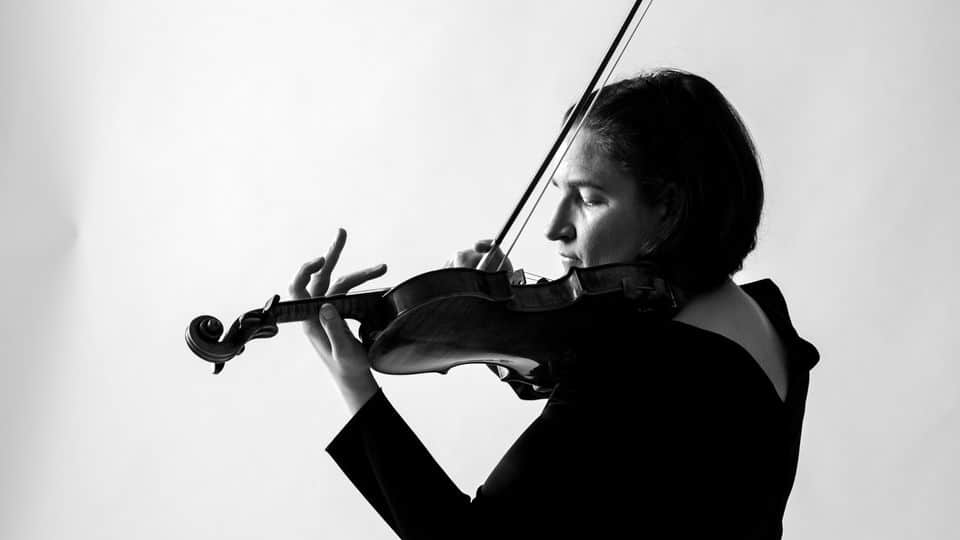Biz news: BBC composer gets an agent
mainThe promising Mark Simpson, composer in residence with the BBC Philaronic, has been signed by Intermusica.
He also plays clarinet and conducts.
Bio: Born in Liverpool in 1988, Simpson won both BBC Young Musician of the Year and BBC Proms/Guardian Young Composer of the Year in 2006. He went on to read Music at St. Catherine’s College, Oxford, graduating with first class honours, and studied composition with Julian Anderson at the Guildhall School of Music & Drama. Simpson was a BBC New Generation Artist from 2012-2014.






Saw the prom. Last night. Interesting.
I was concerned that the very large orchestra and the Crouch End choir did not have even one black person in them. I would hope that London based orchestras and choruses would actively encourage young black musicians to audition. There are many talented youngsters in all our music colleges.
People complaining that contemporary composers are not performers and thus write awful, unattractuive music, will be delighted by Mark Simpson (as they were with Jörg Widmann, also a compoclarinettoser).
This one is a really talented young composer. With quite mixed-up ideas, like this pretentious flop:
https://www.youtube.com/watch?v=l8idDI83my8
But this is much better, an angstridden, Scriabinesque attempt to write Romantic Music in the Grand Manner, with enough chaos and irregularities put into the score to be acceptable for the contemporary music establishment as ‘new music’:
https://www.youtube.com/watch?v=HQgeLRnXRsQ
One can hear that the guy has been informed about music, other than sonic art, because it peeps through the frightened sonic mist at places:
https://vimeo.com/93075714
He also writes opera, and understands the value of contemporary, trendy subjects, so that audiences can understand what is going on and fully identify with the themes – both in the plot and the music, which is so very much harder with Mozart, Wagner and Verdi:
https://www.youtube.com/watch?v=aYlfb4KmL5k
The British musical establishment did not waste time to press this young, promising talent to its breast, to prevent it from developing ideas of his own and (God forbid!) leaving half a century of clichés behind.
You must be joking mate. His stuff is shite, tuneless shite, like all contemporary music and I have searched the web in vain to find one with a tune!
Audiences of classical concerts, have had to put up with over 100 years of bad music from last century to date, not just the “wrong note” variety. It would appear that contemporary music went really pear shaped from the 1950s onwards!
The reasons for this are many but three important factors which have a significant bearing on the quality of contemporary music are the changing role of composers, lack of creative talent and blissfully ignoring audience resistance.
In the olden days, composers were no better than hired servants, those who had ability were lucky enough to gain Court or church appointments were keen to please their benefactors, princes and monarchs to secure and advance their careers and status. Woe betide if their music failed to please a king or queen, for example Elizabeth I. Two important composers who did produce masterpieces were Thomas Tallis and William Byrd. It would have been at the very least no pay or the Tower of London, had either of them composed music like the stuff we have to put up with now. In those days in the 16th century to 19th century composers often had to wait considerable lengths of time to get reimbursed, Purcell for instance had to keep writing letters to request payment for his services, during the reign of Charles II, James II and William III, the latter a dour Dutchman with no interest in music, other than that played in the battlefield.
Contrast this to the present day were composers have now metamorphosed into salaried academics who get publicly funded subsidies and commissions for example, from the BBC and Arts Council etc. Once the money has been allocated it is lost to the ether for ever, unlike the good old days where they had to deliver something of quality to get paid.
Beethoven for example had to resort to litigation in order to obtain his allowance from those Princes, two of whom were actually made bankrupt due to the losses caused by the Austrian currency being devalued after Waterloo. In Beethoven’s case the Court found in his favour and the hapless Princes had to cough up the full amount due.
So the change to salaried academic was one reason for the decline of music qualiy and output. It takes time, talent and creative ability to produce music one would want to hear more than once! As G B Shaw rightly points out, in his play Love among the Artists “those who can do, those who can’t teach”.
Academics do not make good creative artists, stuffy academia is a real impediment to the creative mind, for example that this what the two great comic satirical novels of James Joyce, Ulysses and Finnegans Wake are all about. The same applies to music.
Thus once they become salaried academics, their income does not wholly depend on artistic deliverables, hence the output of new music has fallen in both quantity and quality.
Who for example would ever wish to listen to that daft Tom Coult commission of 5 mins, to open this year’s Proms? He could easily have composed a simply trumpet fanfare or even a grand overture, had he the ability. The audience would have taken notice of it then.
This leads on to the third factor which composers seem to fail to address, overcoming audience resistance. In the case of BBC commissions which have already been paid for out of the public purse, they have no incentive. It would be a different matter if they had to obtain audience approval of their works first before getting paid by the tax payer.
A populist rant of bitter extremes. Was the humiliating position of artists in pre-revolutionary times something good, something to wish for? The widening of the demands of patronage and finally the liberation of artists from restricting bonds around 1800, partly due to the idea that art should be free, has opened a panorama of artistic possibilities unimaginable before, and in music the centre of the repertoire was only THEN begun to be written. Mozart was the first free composer entirely depending upon sales of tickets for his concerts and fees of commissions, in a fairly new ‘market situation’ and he went down under because of it. The aristocracy who supported Beethoven was both decadent and music loving, and ignored B’s sympathies for the French revolution, and let him completely free in his development which they watched with sympathetic interest. Chopin wrote what he wanted, with some lighter music on the side by way of relaxation, and he was respected and admired by the Parisian elites who paid enormous fees for his piano teaching. Etc. etc…. the new status of the composer as a free-standing creative artist was real progress.
But the ‘academic composer’ is a deplorable phenomenon indeed. But the cause of it is the impossibility to function in a modern society where ‘the market’ is defining everything and value is only seen in terms of price. A composer cannot exist in such world, apart from doing it on the side, next to a ‘decent’ job, like poets. But composing music is much more laborious than writing a poem, it requires much more time and energy, so the academic context offers the possibility of combining a restricted number of teaching hours with reasonably enough ‘free time’ to compose. That is why we seem to only hear about composers who have found an academic position, or write music next to a paid job like performing. In short: full-time composing has become impossible, if there is no patronage, a flow of paid commissions, or generous family capital. Commissions can only be attracted after the composer has acquired some reputation and that takes time. The academic composer however, being supported by the new music establishment, can skip that period and ignore audience reactions and the aesthetics of the central performance culture.
If one is surprised about the passivie resistance of audiences to modernist music, one forgets half a century (or more) of intense propaganda by both the modernist composers community and academia, plus the bunch of music critics who thought that it was a good idea to appear ‘modern’, ‘progressive’ and ‘tolerant’, creating a climate of nonsensical goodwill entirely separated from audience reception. But audiences have been bombarded by the simplistic ideology that if they did not like it, they were ‘conservative’, and if they finally would understand, they would automatically enthusiastically embrace ‘the new’. Of course all this has nothing to do with artistic quality. It would be something to be encouraged if audiences would be more assertive and not only stay away from concerts when the OOMP appears on the program (Obligatory Opening Modern Piece) but would protest by booing and heckling. In the eighties there was in London a ‘hecklers affair’, young composers and players interrupting a Birtwistle performance, and after a flurry of irrated exchanges in the media the hecklers disappeared. (What happened to them? Were they arrested and sent to Wales? Mystery.)
I just want to say: the matter is much more complex than the comment above would suggest, and subordination to authoritarian political elites is not something that anybody would wish to inflict upon artists (think of the Soviet Union). That in those old times so much was composed that has proven to be so valuable, was due to 2 reasons; 1) both patronage and composers shared the same aesthetic ideas and 2) composers had considerable freedom within the constraints of a common culture, so that restrictions were not felt as hindrances. Add to this the shared idea that music had a spiritual component, and indeed those times seem ‘ideal’ to us now, but the development of human freedom and the ideas of the Enlightenment made it impossible to return to an innocent but rather primitive situation for composers, or for all types of artists for that matter. The freedom they acquired over the last 200 years came at a price but nobody would conclude that artistic freedom should be sacrificed and composers should ‘get back to their place’ as servants of either audiences or patrons, because that would only result in the commercial stuff we have already all around us.